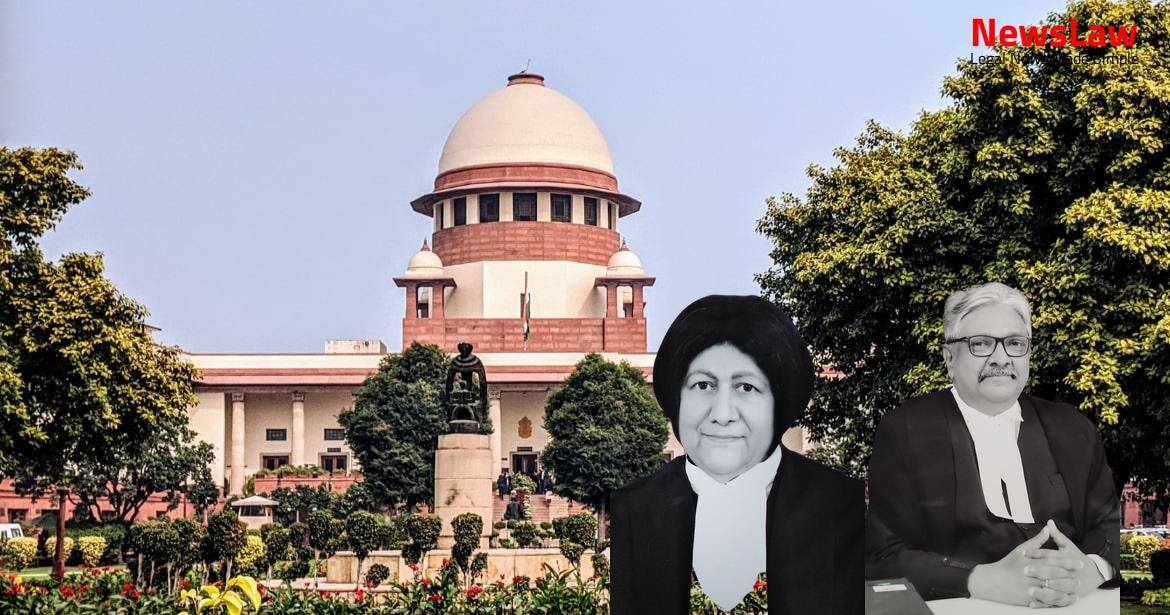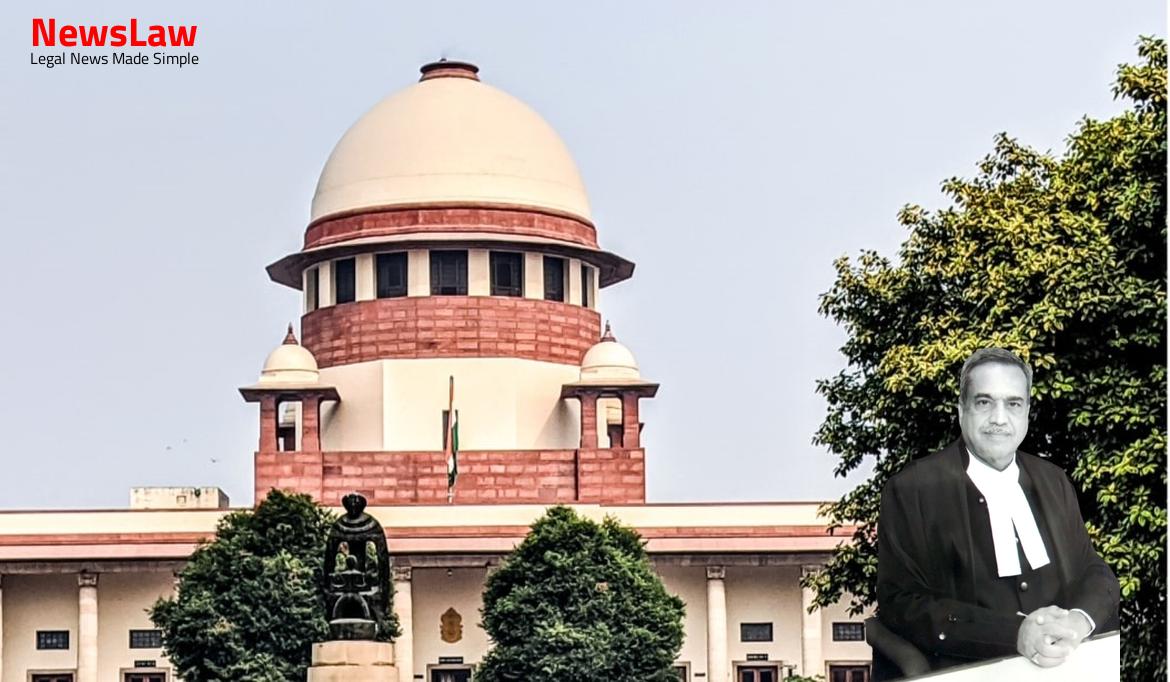The recent judicial review of anti-dumping duty investigation procedures sheds light on the court’s in-depth legal analysis. The scrutiny focuses on aspects such as adherence to timelines, procedural transparency, and the application of legal frameworks in governing such investigations. This blog post provides a comprehensive overview of the court’s assessment of the intricacies involved in anti-dumping duty investigations.
Facts
- Andhra Petro filed applications for anti-dumping duty on normal Butanol from Saudi Arabia;
- High Court directed Designated Authority (DA) to consider the applications afresh;
- DA terminated investigation under Rule 14(b) of the Rules of 1995;
- Andhra Petro claimed to produce 2-EH, a ‘like article’ to 2-PH and INA;
- High Court initiated contempt proceedings due to DA’s handling of the case;
- DA initiated an investigation into alleged dumping from Saudi Arabia;
- Failure to consider the technical and commercial substitutability of imported and domestic products;
- DA terminated the investigation due to insufficient data for evaluating injury to domestic industry;
- The High Court criticized the notification dated 09-07-2019, stating that it ‘cannot be countenanced’.
- The Designated Authority’s decision to extend the investigation period after the second remand order, despite not finding it necessary after the first remand order, was seen as lacking bonafides or worse.
- A corrigendum was issued on the same date amending para 12 to include additional investigation periods from April 2015 to March 2018.
- The DA issued a notice of investigation on 09.07.2019 following certain observations made during the proceedings by the High Court.
Also Read: Legal Analysis of Claim for Loss of Profit in Delayed Contract
Arguments
- Argument made by the petitioner that the choice of the officer acting as DA is at the discretion of the Central Government
- Contending that seeking to enlarge the period of investigation is not a justifiable reason for directing removal of the incumbent DA
- Learned Attorney General’s contention that both impugned orders are unsustainable
- Highlighting the consistent adoption of the Standard Operating Procedure (SOP) in investigations
- Stating that the investigation method is in line with WTO jurisprudence and recommendations
- Submission that determining if goods fall within ‘like article’ term is a technical matter to be validated with relevant data
- Argument that the DA, as a quasi-judicial authority, has the exclusive domain to decide on ‘like article’ description
- Importance of Rule 5(3) of Customs Tariff Rules and considering contemporaneous or latest data for valid investigations by the DA
- Urging the court not to substitute officials based on assumptions of mala fide actions
- Confirmation that the DA acted within the law framework in issuing the notification
- Information that designated authority must be appointed by the Union of India
- Affirming that DA’s request for relevant data is lawful and crucial for evaluation
- Direction for the Union of India to appoint a designated authority as per the stated officers within two weeks
- Closure of pending petitions in light of the final order
- Andhra Petrochemicals Limited satisfied the criteria under Rule 2(8) for the initiation of investigation.
- The Learned AG urged the Court to review the impugned order citing two specific grounds.
- Mr. Mukul Rohatgi argued that the impugned orders do not call for interference and highlighted the failure of the DA to appreciate the submissions.
- It was contended that the two products in question, 2-Propytheptyl Alcohol and Isononanol, can fall within the description of ‘like product’ relatable to 2-Ethyl Hexanol offered by Andhra Petrochemicals Limited.
- The deliberate omission of the DA to comply with the High Court’s directions was highlighted as contumacious by the learned Senior Counsel.
- Mr. Rohatgi argued that the term ‘like article’ includes products with closely resembling characteristics to the one in question.
Also Read: Public Declaration Requirement in Marriage under Hindu Marriage Act
Analysis
- Section 9A of the Customs Tariff Act provides for anti-dumping duty to take effect from the date of its publication in the Official Gazette.
- The approach of the Designated Authority (DA) regarding the question of ‘like article’ is deemed contrary to law.
- Section 9C of the Customs Tariff Act allows appeals to the Customs, Excise and Service Tax Appellate Tribunal (CESTAT) in relation to determinations or reviews of subsidies or dumping.
- The purpose of anti-dumping duty is to prevent unfair trade practices by exporters flooding domestic markets with goods at lower rates.
- The duty may be levied retrospectively in certain circumstances as specified under the Act and Rules.
- The DA is mandated to conduct investigations, identify articles for anti-dumping duty, determine dumping margins, and assess injury or threat to the domestic industry.
- Rules 10, 17, and 20 outline the definitions, timelines, and commencement of anti-dumping duty as per the regulations.
- The High Court observed that in cases of anti-dumping duty investigations, the Period of Investigation (POI) should ideally be one complete financial year to ensure availability of audited details.
- The court criticized the DA for chastising him and directing his replacement when he appeared to follow the prescribed procedures.
- The High Court highlighted the importance of adherence to timelines in conducting investigations as outlined in the Manual of Operation for Trade Remedy Investigations.
- A contempt proceeding was initiated against the DA for willful disobedience of a court order and lack of respect towards the court.
- Rules specify that duties can only be retrospectively levied for a limited period before the initiation of provisional measures.
- The investigation timeframe is set to ensure completion within a specified period and any duty imposed should not exceed five years unless extended after prescribed review.
- The Central Government has the final authority in deciding the imposition, extent, and duration of duties following an investigation.
- Judicial review should be limited, barring exceptional circumstances, to avoid constant oversight of the DA’s functions.
- The judgment in Union of India v. Kumho Petrochemicals highlights that the Anti-Dumping Rules (ADA) are to be assimilated into domestic laws as per GATT and the Marrakesh Agreement.
- Section 9-A aims to ensure fair competition and prevent dumping while maintaining a level playing field.
- The process of imposing anti-dumping duty follows a prescribed quasi-judicial procedure, involving a report to determine whether such duty is necessary to remedy injury.
- The anti-dumping duty is recognized by GATT as a balance between the right of exporters from other countries to sell their products and the interest of domestic markets.
- Dumping is defined by imports at prices lower than the normal value in the exporting country, with sufficient volume to cause injury to the domestic industry.
- Reliance Industries Ltd. v. Designated Authority emphasized the protection of industries built post-independence from unfair competition by foreign companies using dumping as a method.
- The court has decided to set aside the impugned orders.
- Judicial review should be conducted cautiously, especially in cases where final findings are made by the Designated Authority (DA).
Also Read: OCI Cardholders’ Rights and Retroactive Notifications
Decision
- The first two orders have been set aside
- The appeals have been allowed without order on costs
- The third order directing the replacement of the incumbent DA has been set aside
Case Title: THE DESIGNATED AUTHORITY Vs. M/S THE ANDHRA PETROCHEMICALS LIMITED (2020 INSC 526)
Case Number: C.A. No.-003046-003048 / 2020



